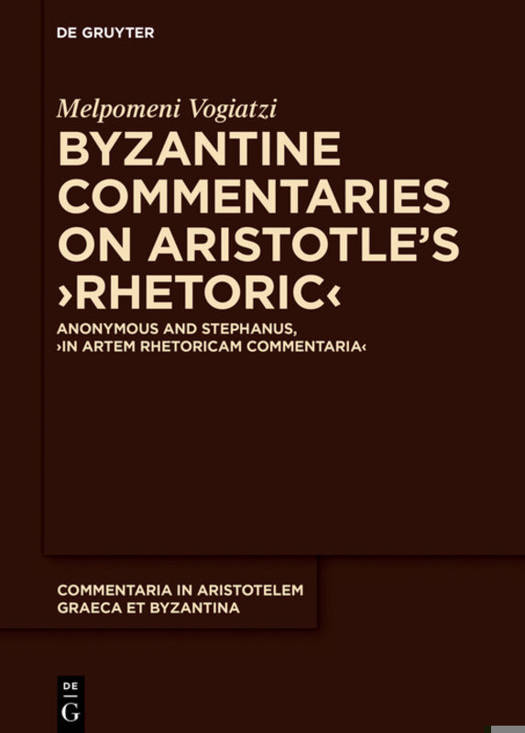
Bedankt voor het vertrouwen het afgelopen jaar! Om jou te bedanken bieden we GRATIS verzending (in België) aan op alles gedurende de hele maand januari.
- Afhalen na 1 uur in een winkel met voorraad
- In januari gratis thuislevering in België
- Ruim aanbod met 7 miljoen producten
Bedankt voor het vertrouwen het afgelopen jaar! Om jou te bedanken bieden we GRATIS verzending (in België) aan op alles gedurende de hele maand januari.
- Afhalen na 1 uur in een winkel met voorraad
- In januari gratis thuislevering in België
- Ruim aanbod met 7 miljoen producten
Zoeken
Byzantine Commentaries on Aristotle's >Rhetoric
Anonymous and Stephanus, >In Artem Rhetoricam Commentaria
Melpomeni Vogiatzi
€ 270,95
+ 541 punten
Omschrijving
Anonymous' and Stephanus' commentaries, written in the 12th century AD, are the first surviving commentaries on Aristotle's Rhetoric. Their study, including the environment in which they were written and the philosophical ideas expressed in them, provides a better understanding of the reception of Aristotle's Rhetoric in Byzantium, the Byzantine practice of commenting on classical texts, and what can be called "Byzantine philosophy". For the first time, this book explores the context of production of the commentaries, discusses the identity and features of their authors, and reveals their philosophical and philological significance. In particular, I examine the main topics discussed by Aristotle in the Rhetoric as contributing to persuasion, namely valid and fallacious rhetorical arguments, ethical notions, emotional response and style, and I analyse the commentators' interpretations of these topics. In this analysis, I focus on highlighting the value of the philosophical views expressed, and on creating a discussion between the Byzantine and the modern interpretations of the treatise. Conclusively, the two commentators need to be considered as independent thinkers, who aimed primarily at integrating the treatise within the Aristotelian philosophical system.
Specificaties
Betrokkenen
- Auteur(s):
- Uitgeverij:
Inhoud
- Aantal bladzijden:
- 274
- Taal:
- Engels
- Reeks:
- Reeksnummer:
- nr. 8
Eigenschappen
- Productcode (EAN):
- 9783110626759
- Verschijningsdatum:
- 8/07/2019
- Uitvoering:
- Hardcover
- Formaat:
- Genaaid
- Afmetingen:
- 175 mm x 244 mm
- Gewicht:
- 635 g

Alleen bij Standaard Boekhandel
+ 541 punten op je klantenkaart van Standaard Boekhandel
Beoordelingen
We publiceren alleen reviews die voldoen aan de voorwaarden voor reviews. Bekijk onze voorwaarden voor reviews.









